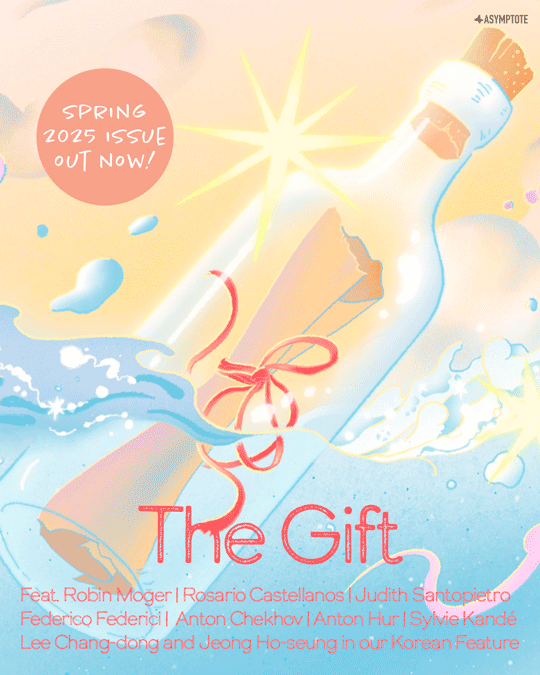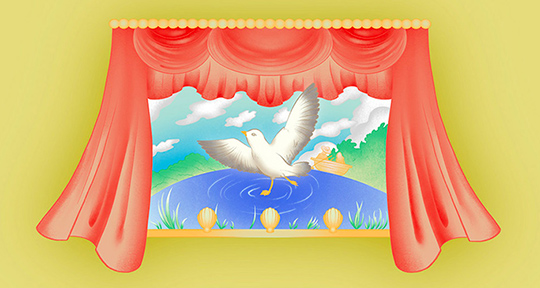What do we need from each other? What do we gain if we give? At the dawn of a new age of tariffs, the dominant mode of exchange has become a kind of brute transactionalism—before one hands over anything, one must demand something of equal value in return. But what if simply giving is the better way to flourish—the way to a richer commons? It is in this spirit that we proudly unveil “The Gift.” Gathering new work from as far afield as Paraguay, Lesotho, Senegal, and Guyana, our Spring 2025 edition centers the generosity of translation—an act that Youn Kyung Hee, invoking Paul Celan, rightly compares to a gift: “For Celan, the event of poesis goes beyond receiving a gift from some unnamed sender; it also comprises the work of sending it out once more, a transmission bottled in glass.” How fitting, then, that our interview section, which usually features major authors in the world literature canon (such as the recently deceased Mario Vargas Llosa, in our Spring 2018 issue), cedes the floor to two of the most prominent practitioners of the art working today: Robin Moger, acclaimed translator of contemporary and classical Arabic literature, and Anton Hur, who went from debuting as a translator in these pages nine years ago to becoming the Booker International Prize-nominated voice in English of Korean authors like Sang Young Park. Hur’s interview pairs perfectly with our Korean Literature Feature, organized in partnership with LTI Korea, whose many highlights include Jeong Ho-seung’s bittersweet “sorrow by special delivery” and talented director-writer Lee Chang-dong’s absurd comedy in which a scrounging couple on vacation return to find their house burgled.

Elsewhere in this edition beautifully illustrated by South Korean guest artist GLOO / Yejin Lee, the theme of gifts—often passed down from the generation prior—persists. The opening trio of pieces (Men and Bread, Long Shadows, and Taxidermy) each consider the tendrils of paternal legacy, but the title of most dad-haunted narrator might be a contest between Pierric Bailly tracing the real-life events leading up to his father’s death in the woods and Song Seung Eon’s imaginary fisherman addressing his macabre haul (“Skull, are you my father? Are you something that was my father?”). In Christopher Carter Sanderson’s sparkling update of Anton Chekhov’s drama The Gull, by contrast, Treplev wrestles with having a celebrity for a mother. (“On her own, she’s a sexy young actress. When I’m near, she looks like a soccer mom.”) Monica Ong—whose visual poems drawing on astronomy have been featured in Scientific American, among other places—likens her parents to intrepid “cosmonauts” for migrating from their native Philippines to a new home in the US. Finally, against the backdrop of brutal deportations from the US, poet Judith Santopietro calls attention to the gifts inherent even in the most dangerous of international journeys, juxtaposing a glimpse of black orchids from atop a freight train with the eventual hardship of “distributing food and christmas gifts” in a foreign land. Too often portrayed as mere victims, Santopietro’s poem reminds us of the agency of immigrants, inviting us to recognize their journeys as choices they have made, and to consider that these, too, may be gifts, if we allow that possibility.
If Asymptote has been a gift to you, consider helping us stick around so that it may be a gift to others down the road. Remember: the best way to support us is to join us as a sustaining or masthead member (and signing up only takes three minutes, but the good it does reverberates through time).

